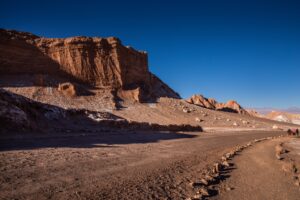
Leia esta página em Português
Christians consider the Bible to be the Word of God, this does not mean that everything that God has left to us is written inside a book. “Jesus did many other things as well. If every one of them were written down, I suppose that even the whole world would not have room for the books that would be written” (John 21:25). “Jesus performed many other miraculous signs in the presence of his disciples, which are not recorded in this book” (John 20:30). That is, much of what the disciples lived with Jesus is not recorded in the Bible. Imagine, then, everything that Christians have experienced in more than 2000 years; for example, how many words of encouragement Jesus’ disciples in the world minister on a single day. We were empowered to continue the works that Jesus started. At the same time, we become absolutely dependent, as a branch depends on the trunk of the tree in order to produce fruit, and this is not just about numbers, but also about personal experiences.
We are challenged to believe beyond what is already consolidated, to broaden our understanding, faith and works. The Lord warned Thomas because his faith was blocked. “Then Jesus told him, “Because you have seen me, you have believed; blessed are those who have not seen and yet have believed.” (John 20:29). We are often like a gas guzzler car. For me, one crumb of Jesus should be enough to believe. “Even the dogs eat the crumbs that fall from their master’s table. Then Jesus said to her, “Woman, you have great faith! Your request is granted” (Matthew 15: 27-28).
Nor will I worship God only for what is recorded in the Bible. There are many greatnesses of God to be discovered, reported and, for them, worship God. “Jesus did many other things.” And he continues to do it, in me, around me, in my time, in my Church. “The heavens declare the glory of God; the firmament proclaims the work of his hands” (Psalm 19:1). What Christ did is even greater than our imagination. “I want to work harder, seek more and better understand the Lord’s movements near me” (The good part, p. 243)
Our communion with Christ must be like an iceberg, most of which are not seen by men. Jesus is working on us 24 hours a day, seven days a week. Joarês Mendes Freitas once wrote:
All porcelain, upon receiving the painting, is taken to the oven and subjected to temperatures above 700 degrees to fix the images. The work can be repeated several times with a new layer of paint and more heat, until the desired quality and beauty is achieved. As children of God, we are in the middle of a process by which the image of Christ is being formed in us. …” The apostle continues in II Co 3.18: “We are being transformed according to his image with ever greater glory.”
It is true that some people do not even have enough Christian life for a good testimony, but we do not live only to witness. Being more than men can see is a conducting wire that runs through the whole teaching of Christ: “Enter your room, close the door”. Like an iceberg, a small part of my christian life needs to be seen, but my real life with God is far beyond sight.
Juracy Bahia


